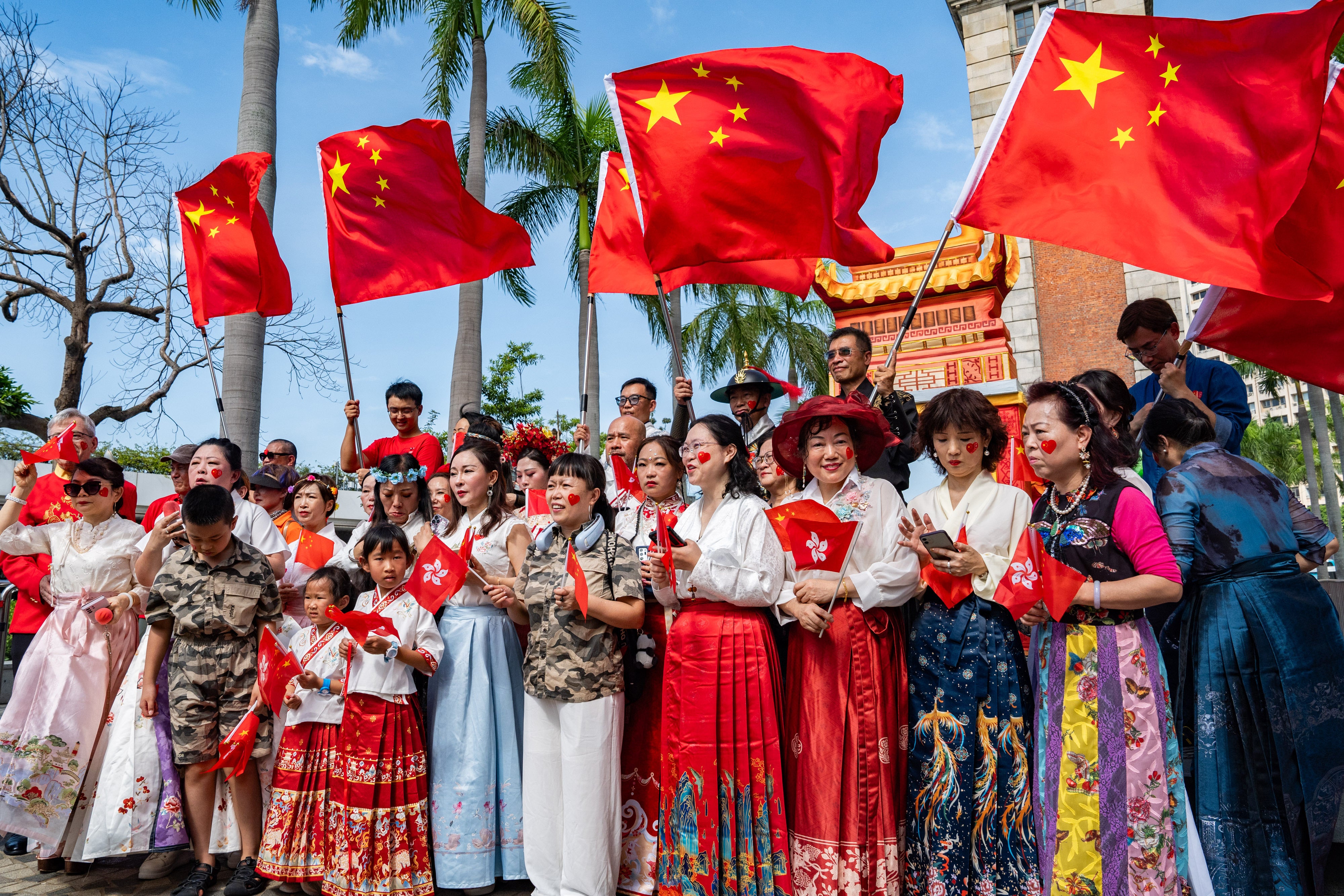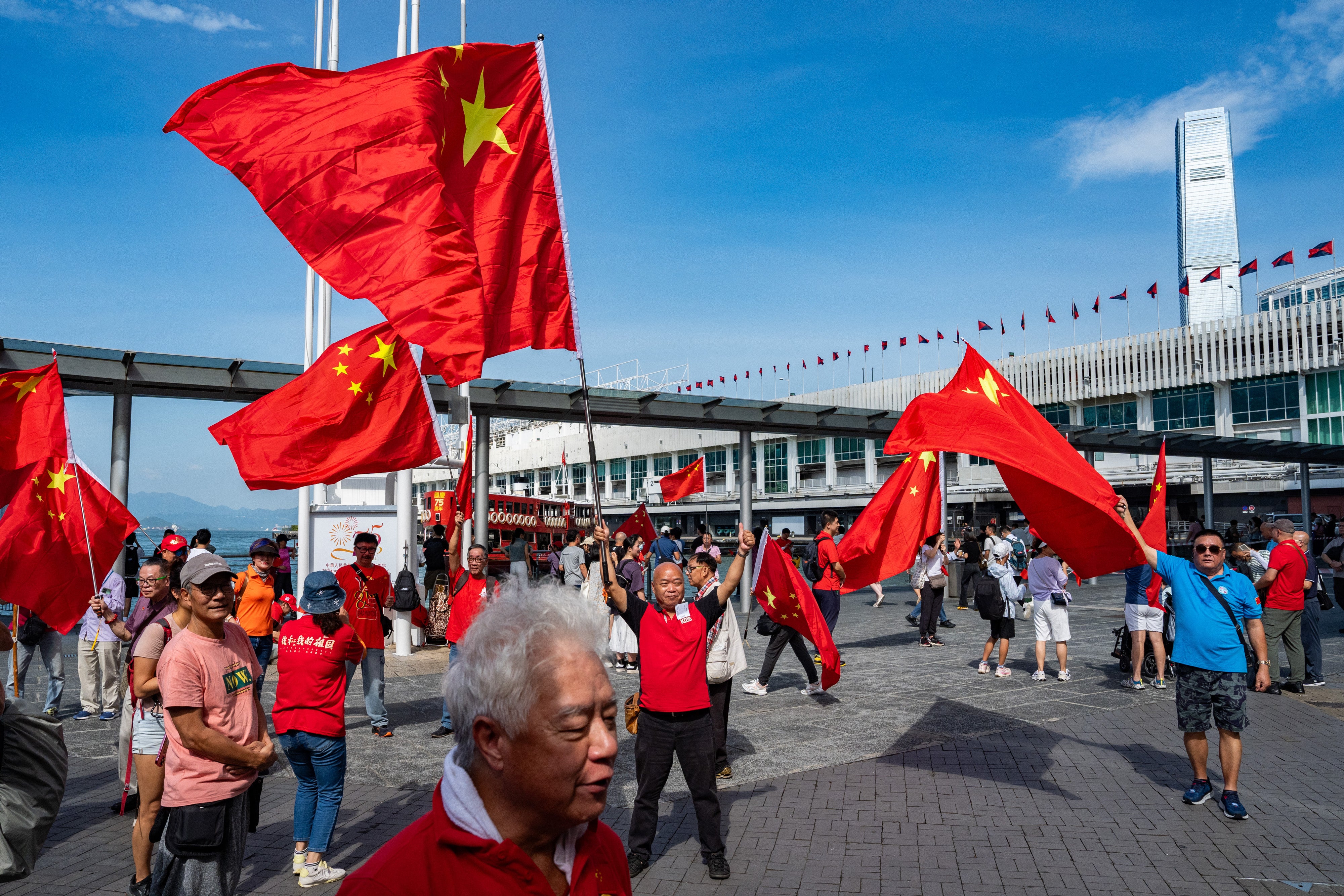Growing economic anxiety overshadows 75th anniversary of communist China
Communist party chief Xi Jinping says ‘the road ahead will not be smooth’
The Chinese Communist Party (CCP) marked the People’s Republic of China’s 75th anniversary in a sombre ceremony as the government battled rising unemployment, economic challenges, and security threats.
The growing financial anxiety has pushed president Xi Jinping and the top members of the CCP to admit to the weakening of the world's second-largest economy on record for the first time in years. China's economy weakened further in recent weeks, signaling the need for support as the government ratchets stimulus.
China's economy, under Communist rule, defied conventional wisdom to grow exponentially until the Covid-19 pandemic. It has since struggled to regain momentum after authorities imposed draconian lockdowns for three years and forced people to stay inside their homes.
The recovery was hindered by a prolonged property slump that led to a spillover effect on other parts of the economy, from construction to sales of home appliances, exacerbated by territorial disputes with neighbours and trading partners.
The economy expanded at a 4.7 per cent pace in the last quarter, slightly below the government's target of about 5 per cent.
The Communists under Mao Zedong seized power in 1949 amid a civil war with the Nationalists, also known as the KMT, led by Chiang Kai-shek, who shifted their political, economic and military power to the now self-governing island democracy of Taiwan.
It was only after Mao’s death in 1976 that China set off on a new path that unleashed the country’s economic potential and lifted millions out of poverty.

Mr Jinping, also the longest-serving chief of the communist party, addressed "potential dangers" and being "well-prepared" to overcome grave challenges, in what is believed to be a reference to the sputtering economy.
"The road ahead will not be smooth, there will definitely be difficulties and obstacles, and we may encounter major tests such as high winds and rough seas, or even stormy waves" Mr Xi warned on Monday during a banquet on the eve of the anniversary.
"We must be vigilant in times of peace, plan ahead, and rely closely on the entire party, the entire army, and people of all ethnic groups across the country" he said, adding that "no difficulties can stop the Chinese people from moving forward".
A survey by the Caixin purchasing managers released this week showed new manufacturing orders fell at the fastest pace in two years in September.

An official measure released by the National Bureau of Statistics showed a less drastic decline but marked a fifth straight month of contraction. The purchasing managers index was at 49.8 in September, up from a six-month low of 49.1 in August.
The staggering economy has snatched the purchasing power of Chinese nationals, making them pessimistic and disillusioned about their prospects, BBC reported, citing a survey by American professors Martin Whyte of Harvard University and Scott Rozelle of Stanford University's Center on China's Economy.
Beijing last week unveiled a raft of policies, including forced interest rate cuts and lower down payments of homebuyers to boost the economy. Over the weekend, the southern city of Guangzhou lifted all home purchase restrictions, while both Shanghai and Shenzhen revealed plans to ease key buying curbs.
The move would help 50 million households and 150 million people, reducing household interest expenses by an average of about 150bn yuan (£15.7bn) a year, said People’s Bank of China governor Pan Gongsheng.
The stimulus package should help shore activity over the coming months, said Gabriel Ng of Capital Economics said in a report. He noted that trade measures against China, such as higher tariffs on electric vehicles and other goods, also will weigh on the economy.
“In this environment, a meaningful cyclical recovery would require sizeable fiscal stimulus,” he told Reuters.
The Chinese government has tried to clamp down on critics of Beijing’s economic policies and other sources of financial frustration. Prominent economist Zhu Hengpeng disappeared from the public eye after he criticised Mr Jinping’s economic policies in a private group chat.
In July, former Global Times editor and outspoken supporter of the Communist Party, Hu Xijin, abruptly went silent on social media after he shared a controversial assessment of Beijing’s economic strategy.
Other measures undertaken by the Communist Party included blocking accounts of influencers on social media for flaunting their wealth, according to reports.
Beijing stopped releasing unemployment figures between August 2023 and January 2024 when the numbers were at a record high. China’s urban unemployment rate across all age categories rose 5.3 per cent in August, according to official data.
The anniversary also comes as China battles frictions with neighbors including Japan, South Korea and the Philippines over territorial claims and their close relationships with Beijing's chief rival, the US.
Additional reporting by agencies
Join our commenting forum
Join thought-provoking conversations, follow other Independent readers and see their replies
Comments
Bookmark popover
Removed from bookmarks